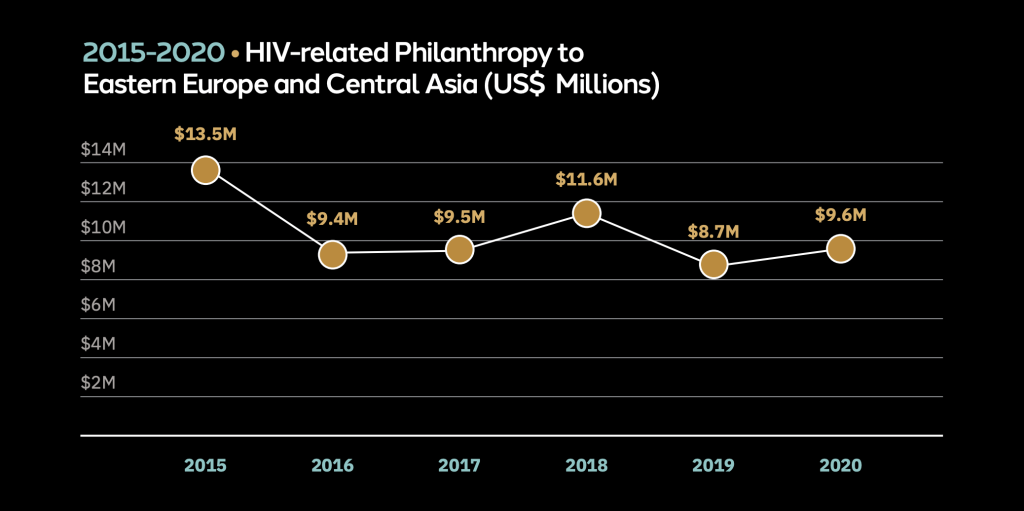Bringing Funders Together Online….
FCAA’s six virtual events in 2022 focused, among others, on issues including the 340B drug pricing program, Mpox (monkeypox), Long COVID, and our own resource tracking data.
In 2022 we found ourselves in the middle of a viral storm, buffeted by HIV, high rates of STIs, COVID-19 and long COVID, and Mpox – all with the potential for long-term, chronic health outcomes that disproportionately impact people living with HIV (PLHIV), particularly in Black and Brown communities. FCAA wanted to explore how the HIV-informed model had been extended to emerging outbreaks like Mpox, as well as chronic pandemics, such as long COVID, with a particular emphasis on the intersectional impact on PLHIV, LGBTQ and BIPOC communities, and the disability rights movement.
In partnership with Grantmakers in Health, Funders for LGBTQ Issues, Funders for Justice, Strategies for High Impact, and the Third Wave Fund, FCAA utilized these virtual conversations to discuss the critical role of philanthropy to address stigma and support prevention and vaccine equity, and to begin to brainstorm what an integrated and well-resourced advocacy movement for this work could look like moving forward.
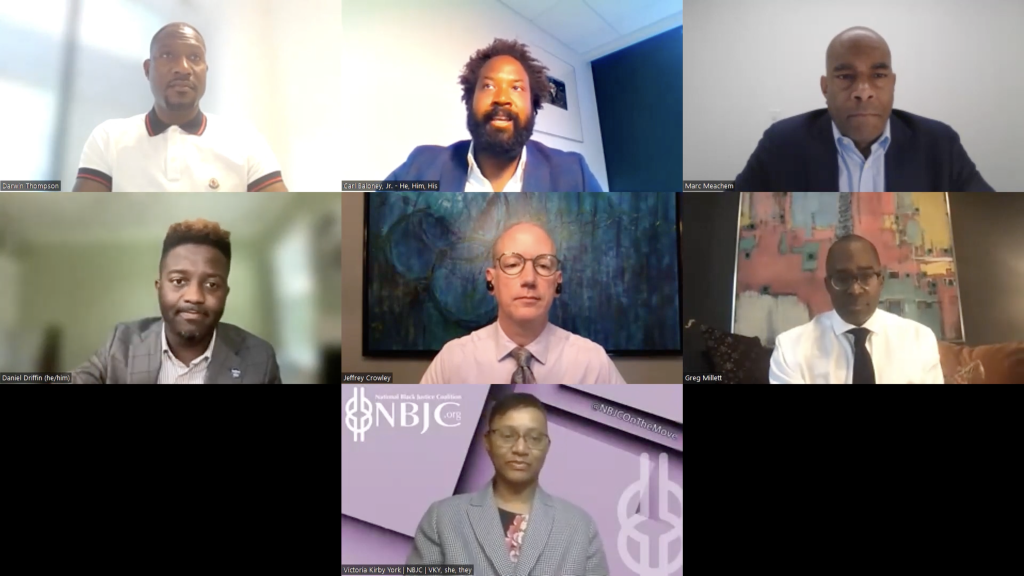
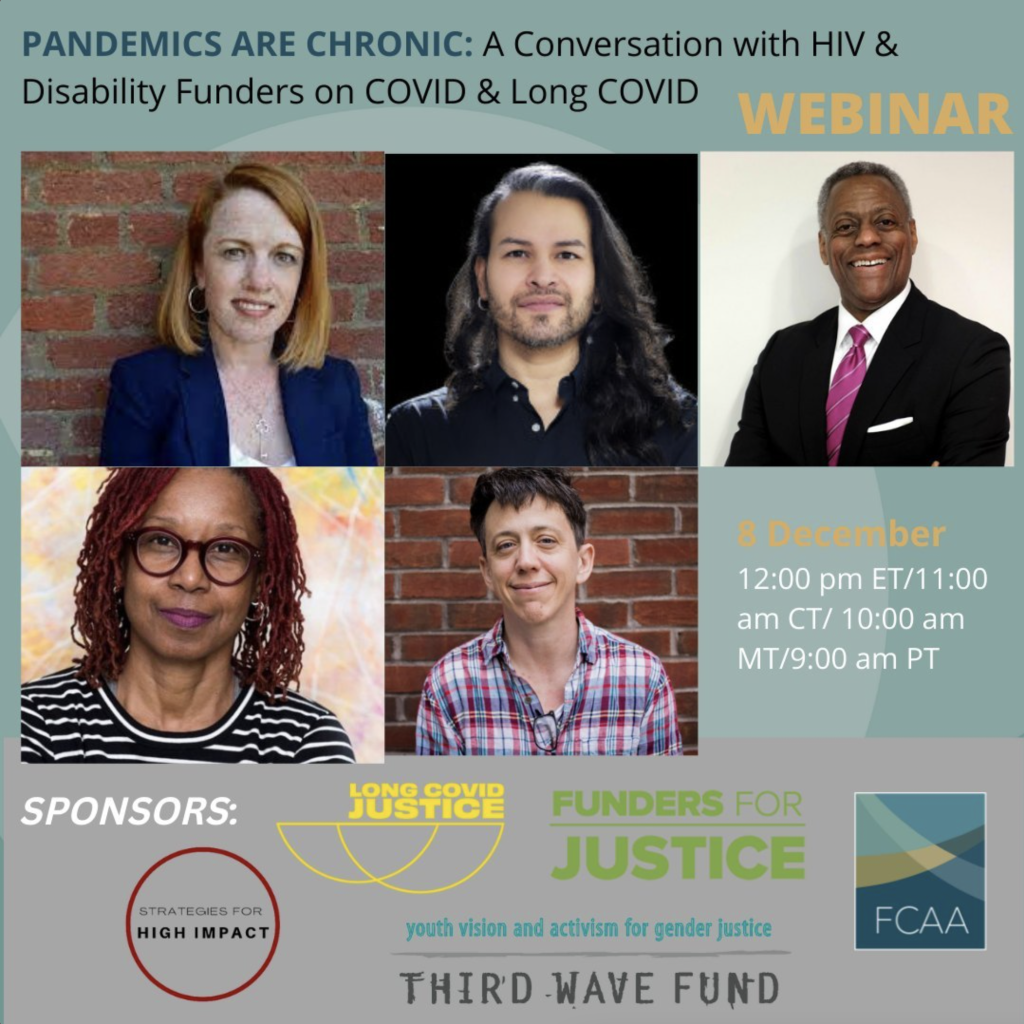
…And in Person
In July, FCAA and the Stephen Lewis Foundation (SLF) hosted a global funder reunion at AIDS 2022 in Montreal, bringing close to 100 HIV-informed funders and partners together to network and discuss the power of a community-led response to HIV.
Meg French, SLF Executive Director, and Vuyiseka Dubula-Majola, Director of Stellenbosch University’s Africa Centre for HIV and AIDS, provided the opening inspiration for the evening by highlighting the Foundation’s new Call to Action for anti-colonial funding of HIV-related community-based care, and their five funding principles to support community-led organizations.
Next, FCAA introduced a clip of the “Impossible” video from 100% Life, profiling the incredible role the HIV civil society is playing at the center of the humanitarian response in Ukraine. In closing, Valeria Rachinska, Human Rights, Gender and Community Development Director for 100% Life, urged donors to provide the flexible and emergency support needed to continue this critical work. She reminded donors that every investment, in the form of flexible funding, will come back in saved lives and a developed society.
“You are not capacity builders – we have so much capacity, you have no idea. You are a bridge between those who have resources and those who do not. That bridge must be walkable. It must not be a mountain.”
-Vuyiseka Dubula-Majola
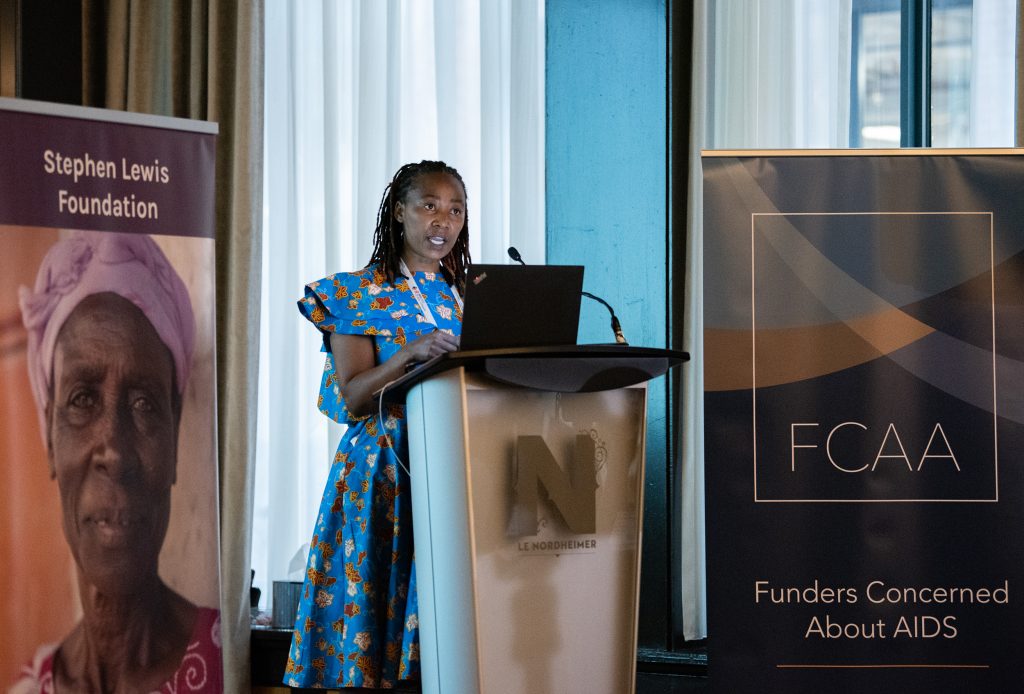
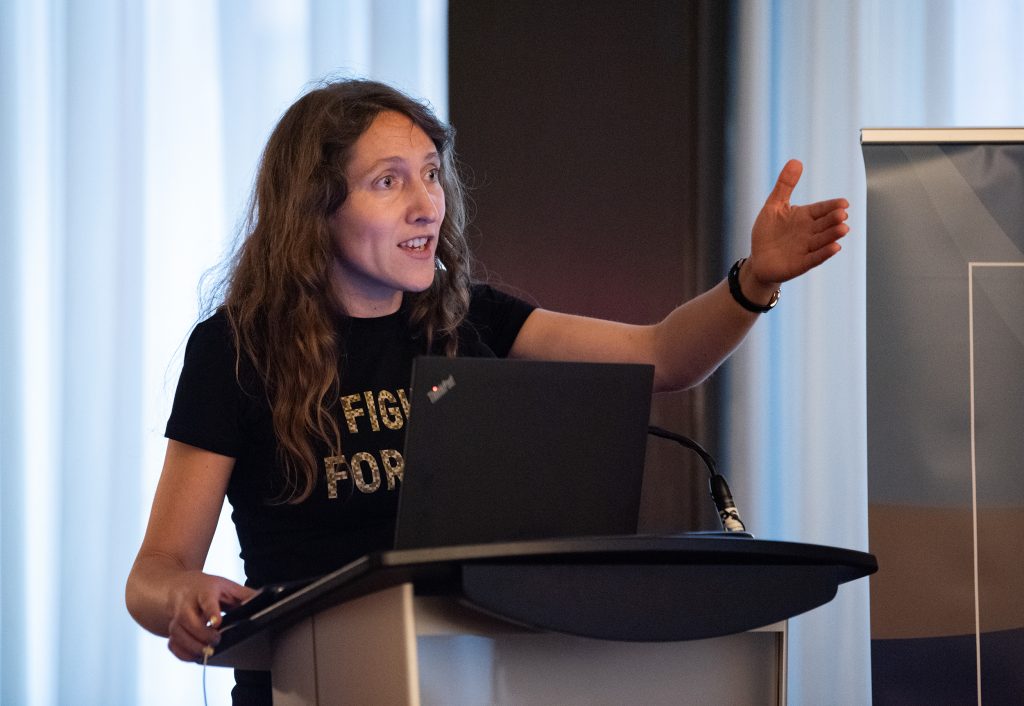
Also during AIDS 2020, FCAA had the immense honor of participating in a community listening session hosted by one of our newest member, MPact. It was attended by representatives from 10 global and regional networks serving key populations. The purpose of the discussion was to hear first-hand about their experiences in receiving – or, more accurately, not receiving – the funding they need.
The resulting graphic recording is just a small reflection of the rich conversation we had in Montreal. It moves from left to right, starting with challenges in accessing and navigating funding, to examples of what type of work and partnership is desired, to finally, concrete recommendations on how to support community.
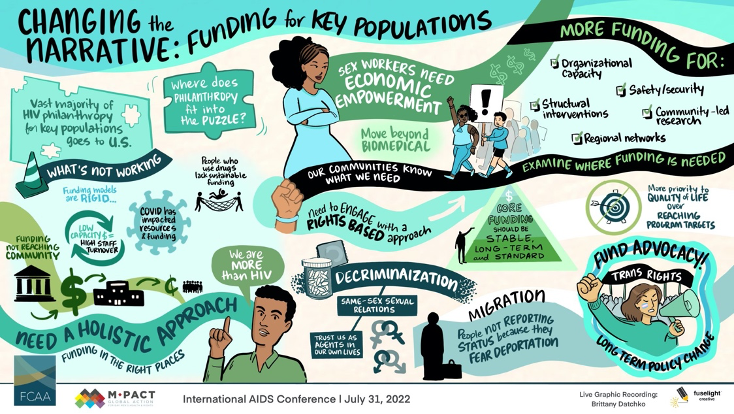
Funder Working Groups
FCAA working groups are member-driven platforms that provide learning and networking opportunities among funders looking to mobilize resources and bring heightened awareness to specific issues in HIV-informed philanthropy.
FCAA continually monitors annual resource tracking data, emerging crises, and opportunities in the HIV and philanthropic sectors, and the leadership of its member organizations for potential working group interests and issues.
For example, Eastern Europe and Central Asia is one of the global regions where the annual rate of new HIV infections continues to rise. While funding levels to the region have only comprised 1% of total HIV-related philanthropy per year, the majority (roughly two-thirds) of those resources address the needs of key populations.
After the invasion of Ukraine, several FCAA member institutions that were already active in the region were extremely responsive. With their active engagement, FCAA launched a new working group for donors to come together to coordinate low threshold emergency and flexible funding during the conflict, with a particular focus on the needs of key populations.
The working group, comprised of representatives of roughly 10 public and private funding institutions, came together on a near monthly basis to hear stories from groups on the ground, learn about the needs and challenges in the region, share best practices, and get information they could bring back to their institutions to inform grantmaking.
